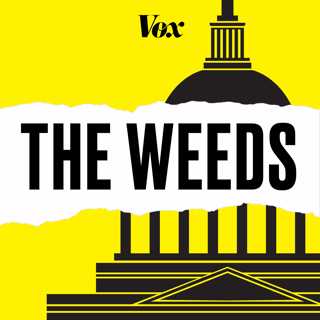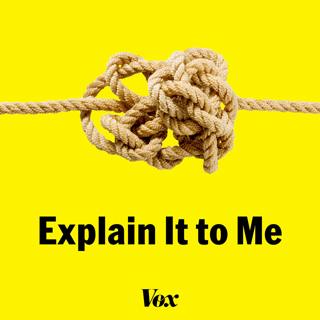
We need to rethink discipline in schools
For many Black children, their first encounter with the discrimination that will trail them their whole lives comes from the school system — a system where they are five times more likely to attend a segregated school than their white counterparts. This early exposure to segregation is one of many possible factors contributing to what’s known as the racial achievement gap — the gap between Black and white students’ test scores. Education experts have looked to a number of factors as root causes of the gap: family income, single parenthood, school resources. Another is the disparities in school discipline. In today’s episode of The Weeds, we dig into school discipline and the achievement gap with Francis Pearman of Stanford University’s Graduate School of Education. Read more: Discrimination everywhere | Vox and Capital B Abbott Elementary Recap: Janine and Gregory Sitting in a Tree | Vulture Excerpt: Collective Racial Bias and the Black-White Test Score Gap Schools are still segregated, and Black children are paying a price | Economic Policy Institute Full study: Collective Racial Bias and the Black-White Test Score Gap | SpringerLink Submit your policy questions! We want to know what you’re curious about. Credits: Jonquilyn Hill, host Sofi LaLonde, producer Cristian Ayala, engineer A.M. Hall, editorial director of talk podcasts Want to support The Weeds? Please consider making a donation to Vox: bit.ly/givepodcasts Learn more about your ad choices. Visit podcastchoices.com/adchoices
14 Juni 202351min

The kids suing their state for climate change
Do Montanans have a constitutional right to a clean and healthy environment? According to the state constitution they do. And a group of young people are using that language to sue the state over its energy policies. The case is called Held v. Montana, and the plaintiffs want to prove the state’s energy policies directly harm the Montana environment. In today’s episode of The Weeds, we’ll dig into the case with Amanda Eggert (@amandaleggert), environmental reporter at the Montana Free Press, and also hear from a plaintiff about why she decided to join the lawsuit. You can read more reporting from Amanda on the Montana legislature, state energy policy, and the environment at MontanaFreePress.org We reached out to the Montana attorney general’s office for comment. Here is the full statement below: “Following the legislative session, there are no existing laws or policies for the district court to rule on. A show trial on laws that do not exist, as the district court seems intent on holding, would be a colossal waste of taxpayer resources. This same lawsuit has been thrown out of federal court and courts in a dozen other states — and it should be dismissed here in Montana as well.” —Emily Flower, spokeswoman for Attorney General Austin Knudsen “This entire lawsuit is a meritless publicity stunt to increase fundraising for their political activism at the expense of Montana taxpayers. Our Children’s Trust is a special-interest group that is exploiting well-intentioned Montana kids — including a 4-year-old and an 8-year-old — to achieve its goal of shutting down responsible energy development in our state. Unable to implement their policies through the normal processes of representative government, these out-of-state climate activists are trying to use liberal courts to impose their authoritarian climate agenda on Montanans.” —Kyler Nerison, communications director for Attorney General Austin Knudsen Credits: Jonquilyn Hill, host Sofi LaLonde, producer Cristian Ayala, engineer A.M. Hall, editorial director of talk podcasts Want to support The Weeds? Please consider making a donation to Vox: bit.ly/givepodcasts Learn more about your ad choices. Visit podcastchoices.com/adchoices
7 Juni 202341min

The fate of affirmative action
Summer is around the corner, which means the latest rulings from this Supreme Court are as well. Two cases will take on affirmative action. In this episode of The Weeds we go on a deep dive with Vox reporters Fabiola Cineas and Ian Millhiser and look at the man behind both cases, the current state of affirmative action, and what a future without this policy would look like. Read More: Everything you need to know about the Supreme Court affirmative action cases - Vox The Supreme Court discovers that ending affirmative action is hard in the Harvard and UNC cases - Vox Reflections of an Affirmative Action Baby, by Stephen L. Carter Credits: Jonquilyn Hill, host Sofi LaLonde, producer Cristian Ayala, engineer A.M. Hall, editorial director of talk podcasts Want to support The Weeds? Please consider making a donation to Vox: bit.ly/givepodcasts Learn more about your ad choices. Visit podcastchoices.com/adchoices
24 Maj 202358min

Why is child labor making a comeback?
The first child labor law in America went on the books almost 200 years ago, and federal labor protections were enshrined in the Fair Labor Standards Act nearly 100 years later in 1938. So almost a century after the passage of the FLSA, why are we seeing reports of children working in factories, slaughterhouses, and even at McDonald’s? Meanwhile, state legislators are introducing bills across the country that further weaken child labor protections. Historian Beth English and Vox senior policy reporter Rachel Cohen explain. References: The Republican push to weaken child labor laws, explained | Vox Alone and Exploited, Migrant Children Work Brutal Jobs Across the U.S. | The New York Times 10-year-olds among hundreds of children found working at McDonald's restaurants | NBC News Credits: Jonquilyn Hill, host Sofi LaLonde, producer Brandon McFarland, engineer A.M. Hall, editorial director of talk podcasts Want to support The Weeds? Please consider making a donation to Vox: bit.ly/givepodcasts Learn more about your ad choices. Visit podcastchoices.com/adchoices
17 Maj 202353min

The Weeds, Live – Anti-trans legislation, explained
In recent years, there’s been a dramatic increase in the number of anti-LGBTQ bills introduced in state legislatures across the country. The ACLU is currently tracking 474 such bills, the majority of which target transgender rights. Meanwhile, trans people are over four times more likely than cisgender people to be the victims of violent crime. And according to a 2022 report from the Trevor Project, 45 percent of LGBTQ youth seriously considered suicide in the past year, including more than half of transgender and nonbinary youth. In this live taping of The Weeds, host Jonquilyn Hill sits down with Danni Askini, co-executive director of national programs for the Gender Justice League. The two examine the history of gender-affirming care, discuss how changes in health policy and advancements in marriage equality have led to this backlash, and explore how advocates are responding. Credits: Jonquilyn Hill, host Sofi LaLonde, producer Cristian Ayala, engineer A.M. Hall, editorial director of talk podcasts Want to support The Weeds? Please consider making a donation to Vox: bit.ly/givepodcasts Learn more about your ad choices. Visit podcastchoices.com/adchoices
10 Maj 202345min

Policymaking on the high seas
Question: What is the world’s largest habitat? Here’s a hint: It also takes up about half of the Earth’s surface. Any guesses? It’s the high seas, the parts of the open ocean outside any single country’s jurisdiction. And for the first time ever, there is a plan to protect it. Read More: The largest habitat on Earth is finally getting protection | Vox The High Seas Treaty, Explained | Reuters The BBNJ agreement and liability | ScienceDirect Journal Credits: Jonquilyn Hill, host Sofi LaLonde, producer Cristian Ayala, engineer A.M. Hall, editorial director of talk podcasts Want to support The Weeds? Please consider making a donation to Vox: bit.ly/givepodcasts Learn more about your ad choices. Visit podcastchoices.com/adchoices
3 Maj 202344min

How Secretary Buttigieg wants to make America’s roads safer
On this week’s episode of The Weeds, we sit down with Transportation Secretary Pete Buttigieg to talk about transportation policy in America. From subways and buses to cars and safer roads, listen for more about the future of public transportation and the policies that can curb traffic deaths. Plus, more from Vox’s Marin Cogan and her reporting on the deadliest road in America. Related Reading: How a stretch of US-19 in Florida became the deadliest road for pedestrians - Vox Cars transformed America. They also made people more vulnerable to the police. A driver killed her daughter. She won't let the world forget. Credits: Jonquilyn Hill, host Sofi LaLonde, producer Cristian Ayala, engineer A.M. Hall, editorial director of talk podcasts Want to support The Weeds? Please consider making a donation to Vox: bit.ly/givepodcasts Learn more about your ad choices. Visit podcastchoices.com/adchoices
26 Apr 202352min

Mifepristone and the FDA’s exhaustive approval process, explained
It’s been 10 days since a federal judge in Texas issued an unprecedented ruling that nullified the 2000 Food and Drug Administration approval of mifepristone, the first medication in a two-pill combination for medication abortion. A confusing legal battle ensued, and now we are waiting to hear from the Supreme Court. But we still want to know: What does this mean for the future of FDA drug approval? Vox’s Keren Landman (@landmanspeaking) explains. References: Abortion pill ruling: Why mifepristone is safe abortion medication - Vox Credits: Jonquilyn Hill, host Sofi LaLonde, producer Cristian Ayala, engineer A.M. Hall, editorial director of talk podcasts Want to support The Weeds? Please consider making a donation to Vox: bit.ly/givepodcasts Learn more about your ad choices. Visit podcastchoices.com/adchoices
18 Apr 202337min






















